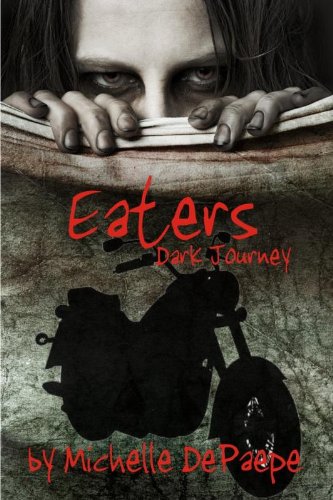Despite what you may feel about Lada Gaga, when it comes to marketing, she knows what's she doing. Look at how she recently went directly to Amazon to sell the MP3 of her new album for just 99 cents. I'm not that big of a fan but I'll admit, I bought it. And why not? When you can buy a brand new album for 99 cents, that is what I like to call a no-brainer. When asked whether her new record was worth more than 99 cents, Gaga said:
Of course, as it turns out, Amazon paid the difference on all of those purchases to the record company, as this was also a way to help promote Amazon's new Cloud Drive and Player, so you can't quite equate it to the same as authors publishing their novels for the same price, but in a way, it does show a level of outward thinking on Gaga's part.
So what can we learn from Gaga here? Well, that 99 cent can be beneficial at times. There will always be the debate on whether 99 cent e-books are good for the author and blah blah blah, but do you know who they can be very good for? The reader.
Last week Aaron Polson did a little rant about this literary agent's blog post. It basically talks about self-publishing and comes to this startling conclusion: "This trend toward self-publishing serves primarily the writer. (Not readers and not the publishing industry as a whole.)"
I thought about doing a blog post about this but never could think of anything good enough, as I began to focus more on why do writers read these blogs by literary agents in the first place? Sure, you can get some insight into the publishing industry, but do you really want to be represented by an agent who spends a lot of their time blogging when they should be reading manuscripts and trying to sell those manuscripts? In my opinion, most of these agents blog just for the ego boost it gives them and nothing more. I mean, look at that one agent's blog post and the 100+ comments. Almost all of the commenters are writers, and guess who they agree with -- the agent, of course! Like by agreeing with the agent might bring them closer to one day being signed by the agent.
Anyway, my thoughts on "this trend toward self-publishing"? Yes, it serves the writer, but it also serves the reader by delivering reasonably priced e-books. I'm sure I mentioned here before how one of the main reasons I finally decided to jump into self-publishing e-books with both feet was because of Scott Snyder's Voodoo Heart. The Kindle edition had been $9.99, and I had waffled a bit on whether or not to buy it. Then, a month or two later, Random House went with the agency pricing model, and guess how much the collection became? $14.99. That's actually a bit more than the trade paperback at Amazon, believe it or not.
So now I ask you: how does that price benefit either the writer or the reader?
It doesn't benefit either of them. Who it benefits, of course, is the publishing company, and, perhaps, Scott Snyder's literary agent.
Obviously that blogging literary agent doesn't really care much at all about readers, but just her own job. Because if more and more writers start going directly to readers, then where does that leave her?
But 99 cent e-books? Sure, they can be beneficial. I mentioned last week how Amazon had stopped the free promotion The Silver Ring but the e-book was still selling. I figured when June started, sales would begin to trickle. But they haven't so far. Yesterday alone I sold over 100 e-books. As of right now today, I'm currently at 164 e-books. That's just in a day and a half. To give you some prospective, the number of e-books I sold on Kindle in April -- the month I released The Calling and did that mini blog tour -- was only 165.
So within less than two months I already have massive increase. Granted, Amazon's free promotion on The Silver Ring helped matters drastically. In fact, so far this month the bulk of the sales are for The Silver Ring. I was lucky, but I also used that luck to my advantage. I didn't just sit back and see what would happen. No, instead I used the free promotion to promote my other work and did everything I could go spread the word to get the e-book to the top 100. And that happened. And, right now, it's paying off.
Will sales for The Silver Ring eventually slow back down? You bet. Dave Silva says I'm way too pessimistic all the time, but I like to think of myself as just being realistic. Because let's face it -- the e-book isn't going to keep selling as well as it is all month long. It will eventually drop off. But that's okay. Because I'm sure another one of my e-books will just take its place. After all, the prices are right for the reader. And the reader is the most important thing here, no?







 A few weeks ago, Lev Grossman, the book critic for Time, had this to say about literary fiction:
A few weeks ago, Lev Grossman, the book critic for Time, had this to say about literary fiction: